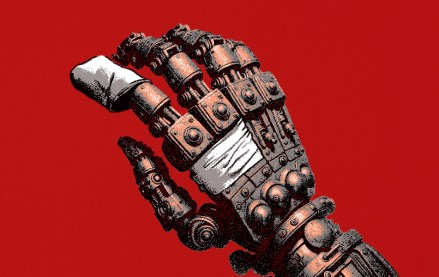
Facebook wants brands to clean up their acts.
Effective Nov. 5, brands will be banned from incentivizing users to like their Facebook pages, both on Facebook itself and within their own apps.That will mean no more spammy Facebook posts in which brands offer a discount or similar reward for those who like their Facebook page, according to a Facebook blog post intended for app developers. Say goodbye to cheesy Facebook come-ons, well, at least those of this variety.
The change also applies to apps — both mobile games and publisher apps — that have integrated Facebook’s like feature into the interface. A mobile game can no longer offer players extra lives or in-game currency in exchange for a like, and publishers can’t only show certain stories or videos to readers who like their page.
Facebook’s ban on “like-bait” (as some are calling the practice) falls in line with Facebook’s continued effort to de-clutter users’ news feeds and serve more substantive advertisements to its users.
“To ensure quality connections and help businesses reach the people who matter to them, we want people to like Pages because they want to connect and hear from the business, not because of artificial incentives. We believe this update will benefit people and advertisers alike,” Facebook engineer Harshdeep Singh wrote.
This change will be the culmination of more than a year’s worth of Facebook gradually cracking down on like-bait. Facebook updated its news feed algorithm last August to show “more high quality content” as determined by users’ survey responses. Although Facebook hasn’t been forthcoming about what its readers deem quality, it was apparent that rooting out like-baiting posts was a goal. One of the questions Facebook asked its users was: “Is the content genuinely interesting to you or is it trying to game News Feed distribution? (e.g., asking for people to like the content).”
In April, Facebook retired sponsored stories — the ad unit that showed when a Facebook user’s friend interacted with (i.e., “liked”) a brand post — and brought “social context” to all ads, a move ad agency executives took as a cue to start creating more engaging ads on Facebook.
That same month Facebook “improved” its news feed again that same month to further devalue like-baiting, saying that Facebook users report that “like-baiting stories are, on average, 15 percent less relevant than other stories with a comparable number of likes, comments and shares.”
“It’s a good thing for consumers and, in the long run, brands,” said Fahad Khan, CEO of One Public, an ad tech company that is one of Facebook’s preferred marketing developers. “Brands will never benefit from continuously posting crappy content on Facebook.”
Brands can continue simply asking users to like their pages without offering an incentive to do so, however.
While this latest announcement seems to be another nail in the like-baiting coffin, it’s possible some like-baiting attempts will still be published. Facebook will attempt to police them with “automated and human systems,” according to a Facebook spokesperson.
More in Media

Why some publishers aren’t ready to monetize generative AI chatbots with ads yet
Monetization of generative AI chatbot experiences is slow going. Some publishing execs said they’re not ready to add advertising to these products until they scale or can build a subscription model first.

Media Briefing: Publishers who bet on events and franchises this year are reaping the rewards
Tentpole events and franchises are helping publishers lock in advertising revenue.

With Firefly Image 3, Adobe aims to integrate more AI tools for various apps
New tools let people make images in seconds, create image backgrounds, replacing parts of an image and use reference images to create with AI.





